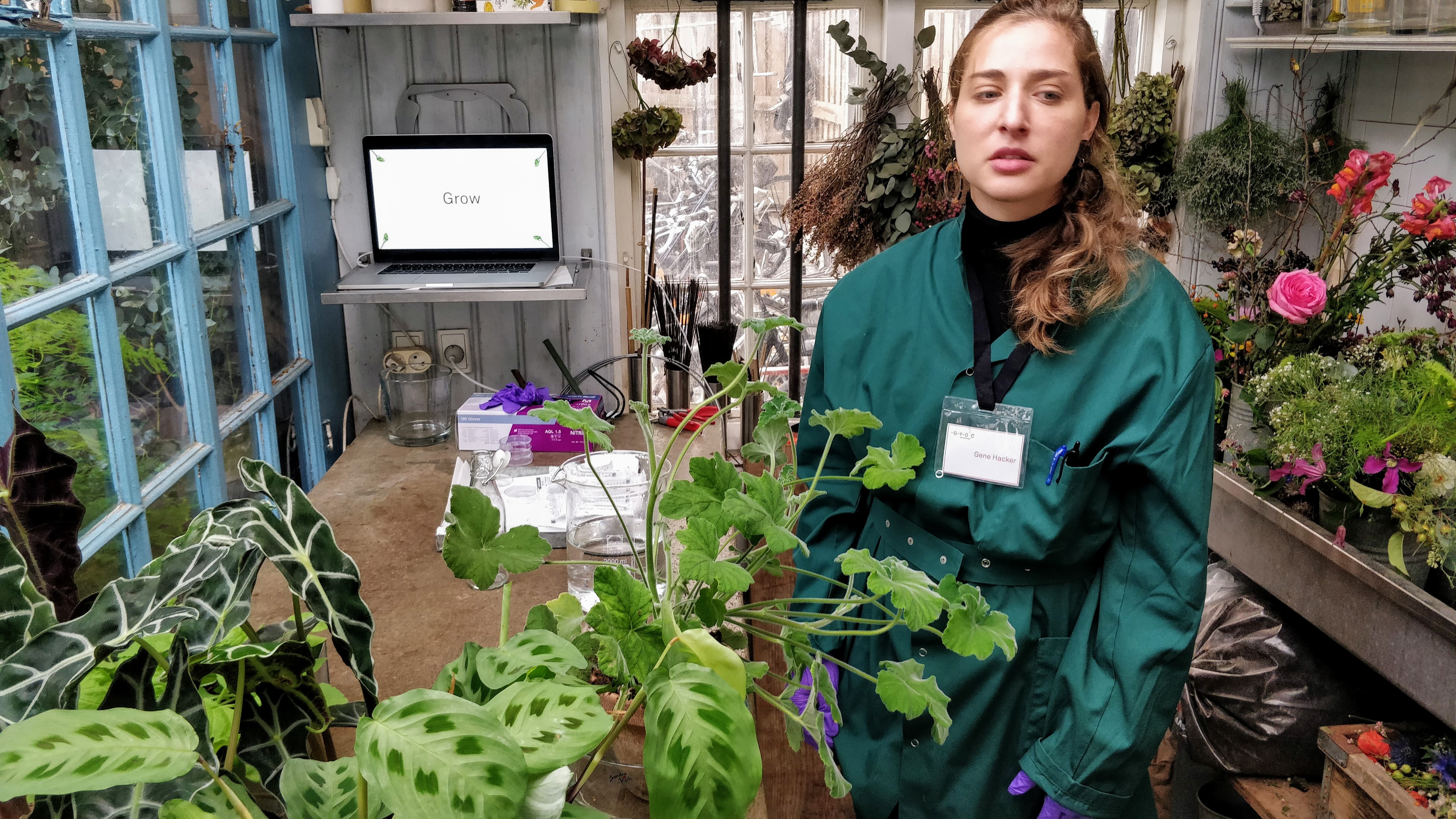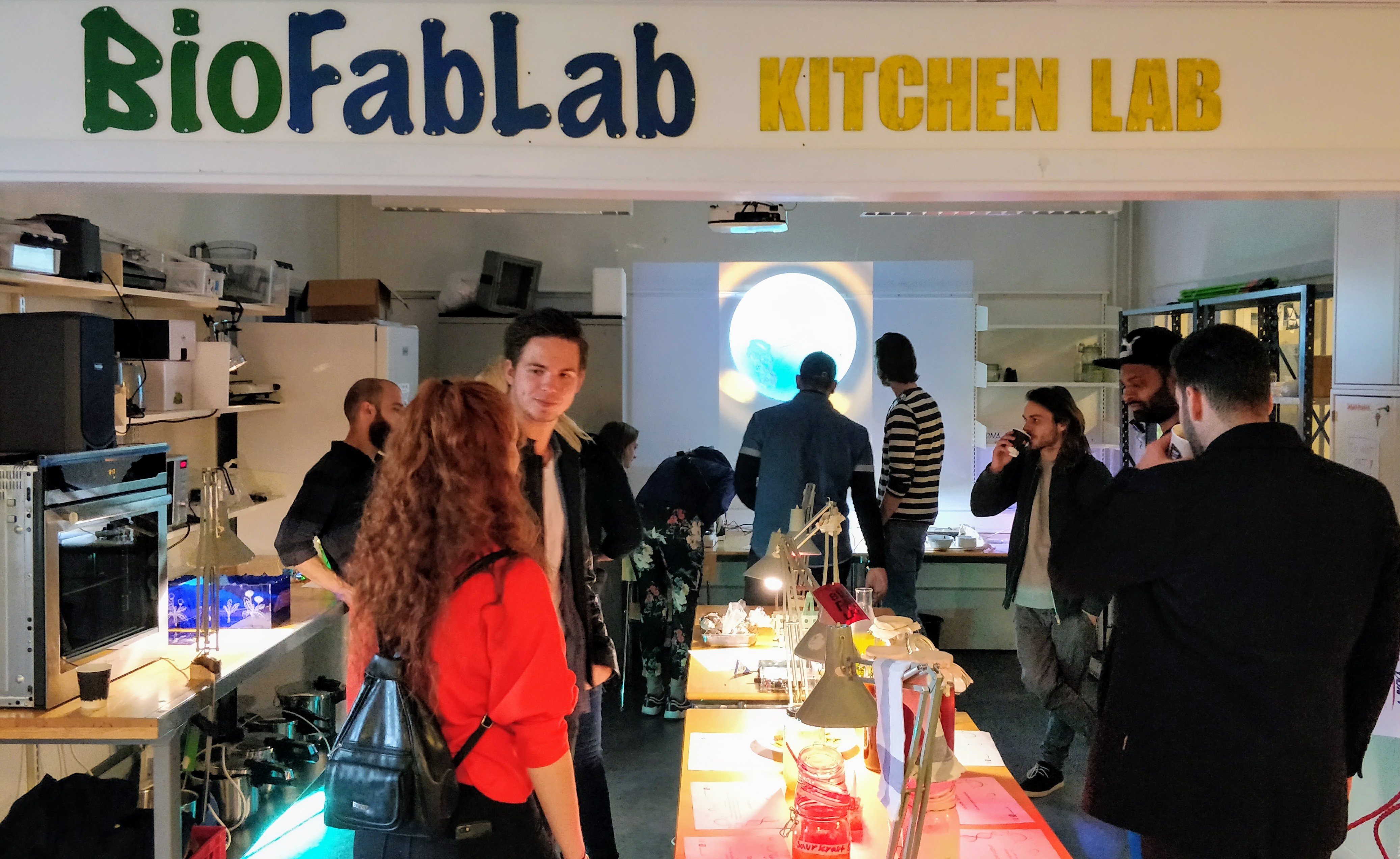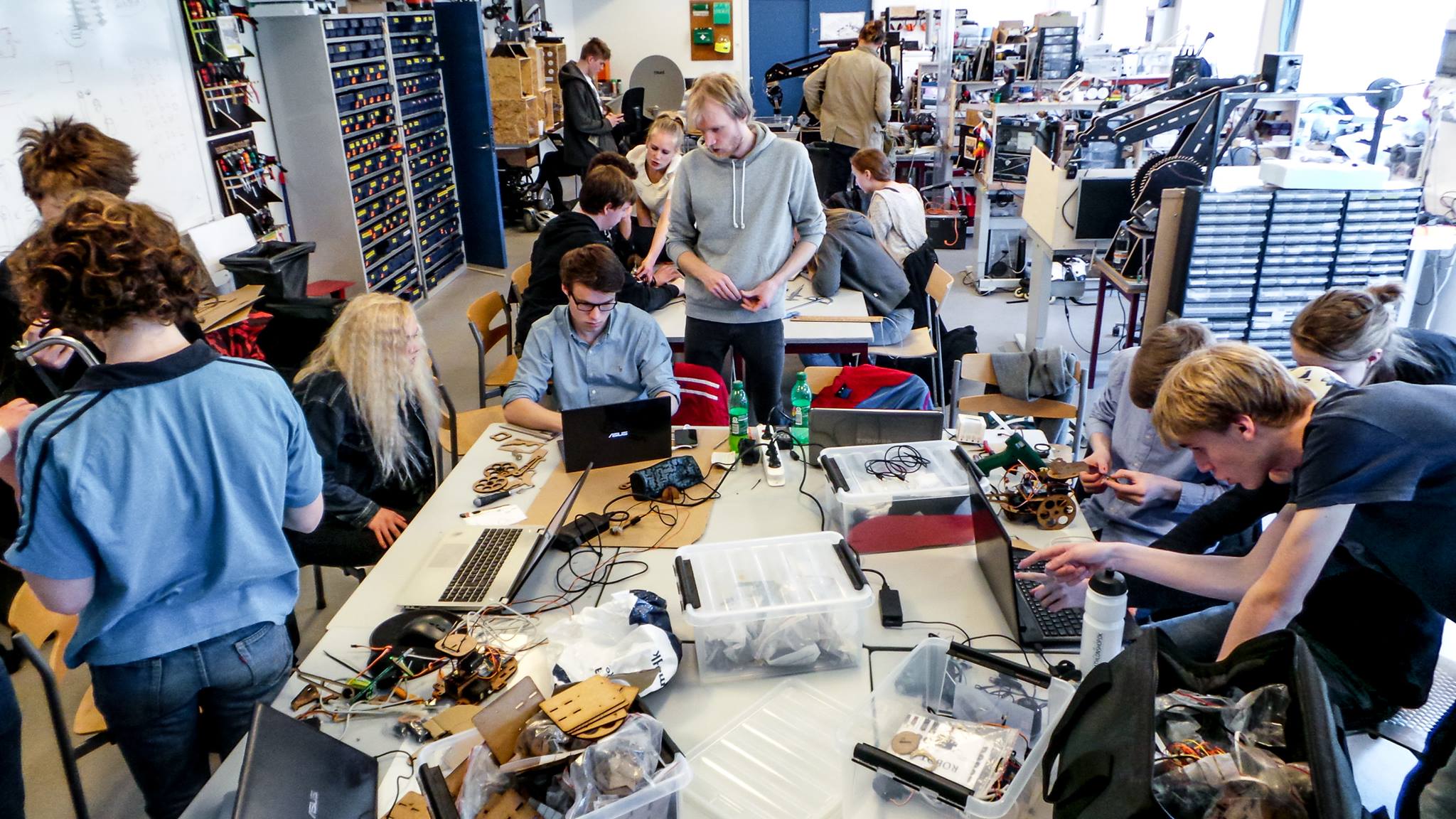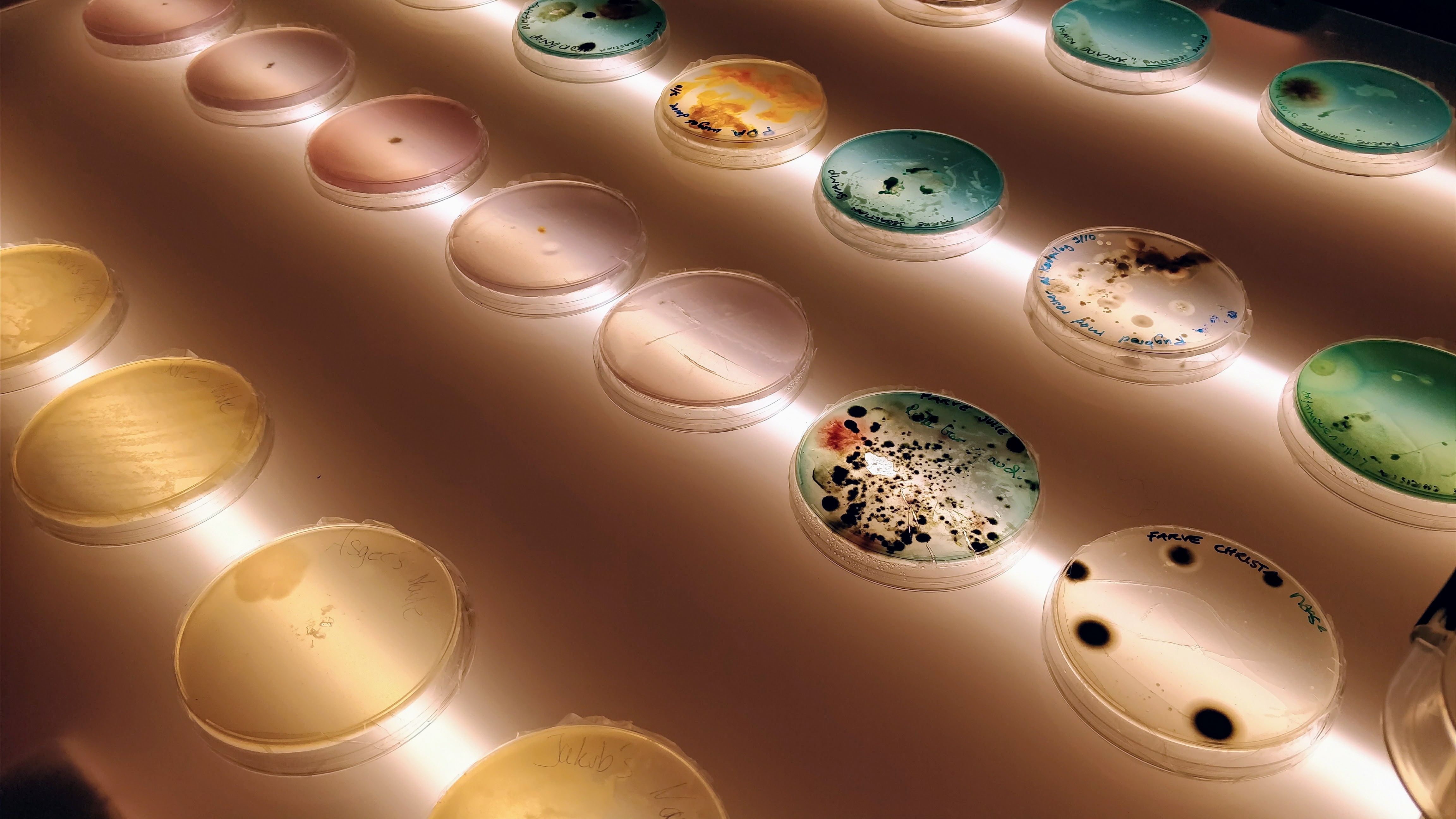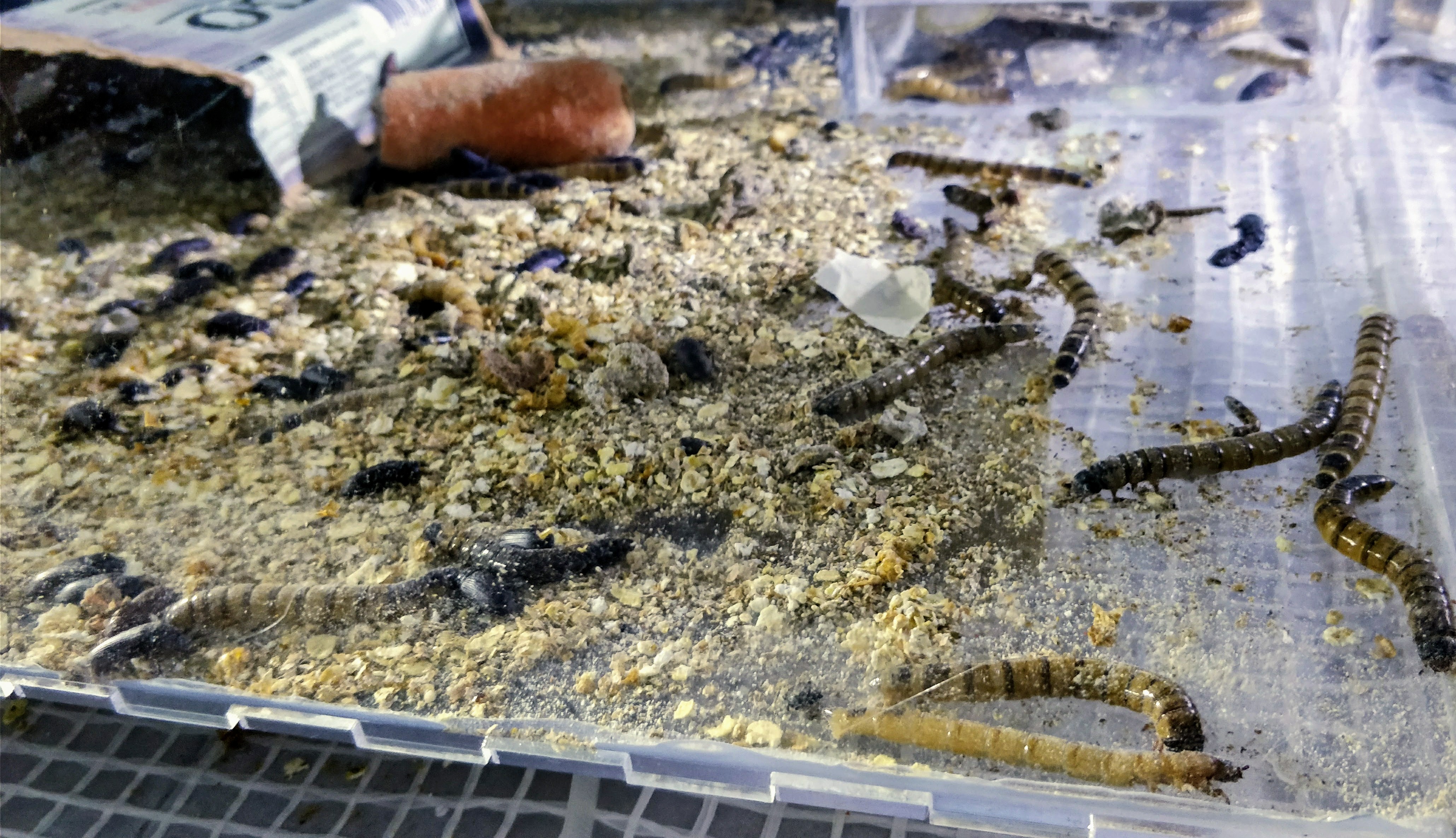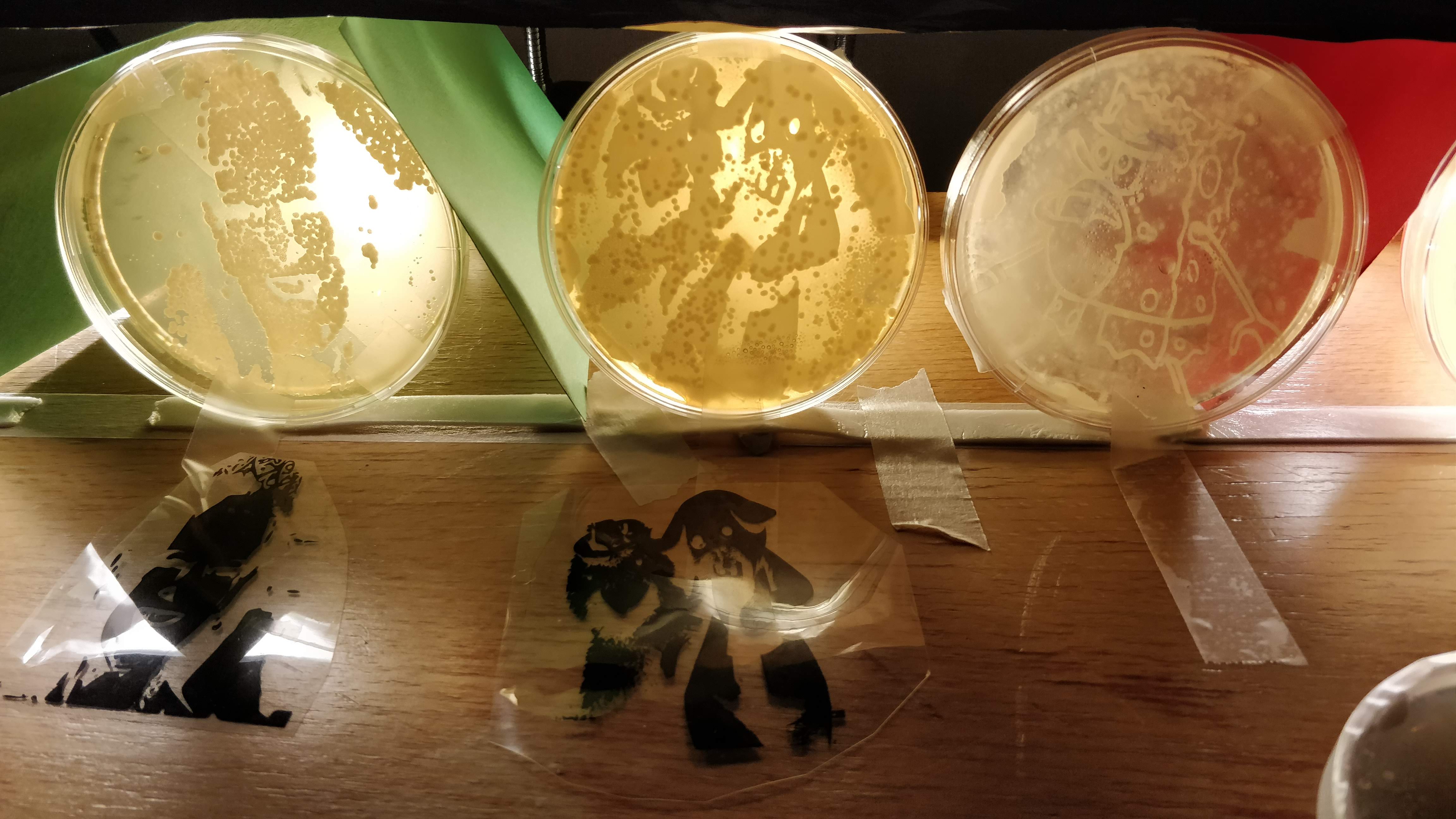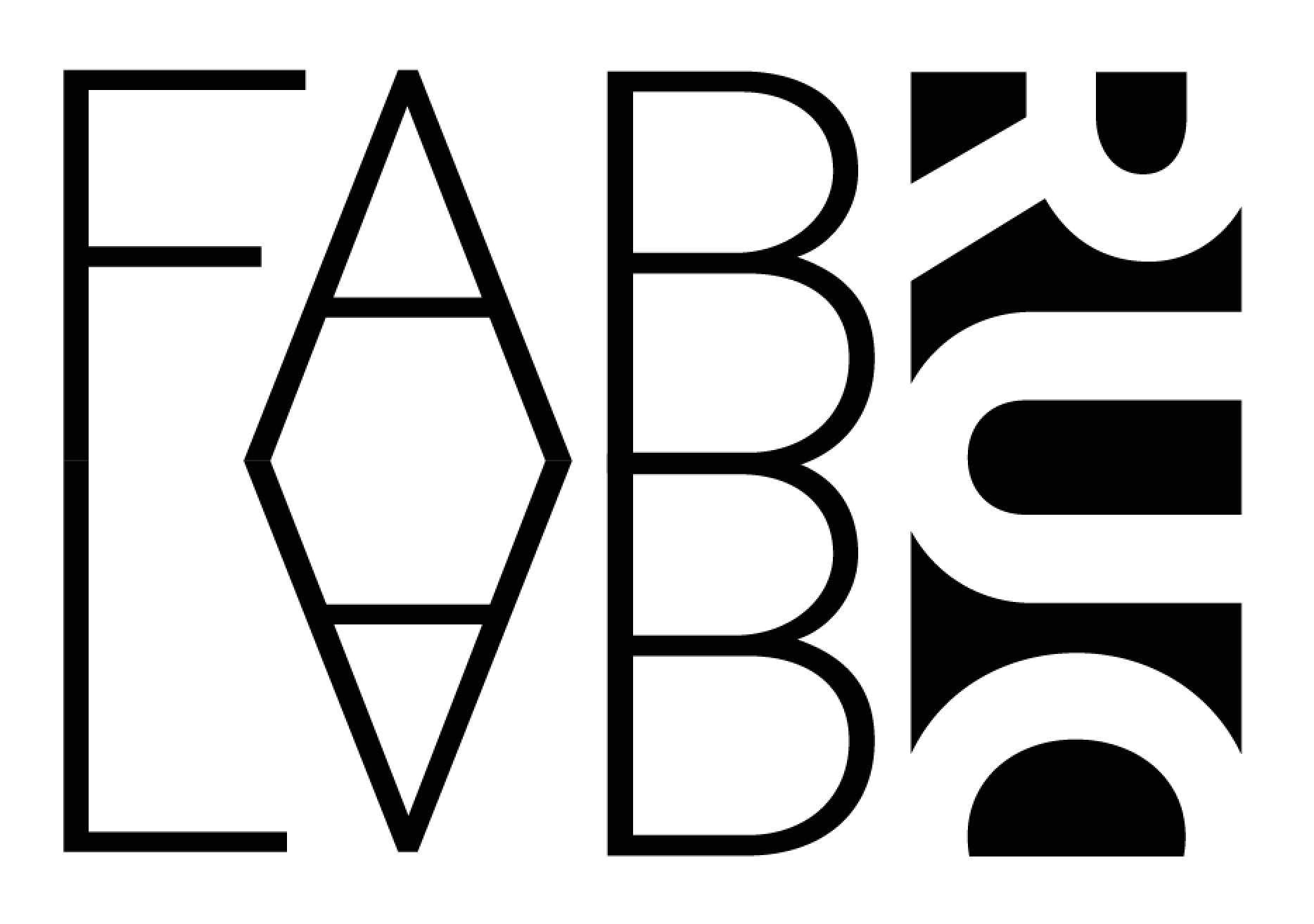Biofabbing & Ecology - BioFabLab Summer Workshop 2018
This is the 2018 description for the 2019 description see biofabbing & Ecology 2019
A 3 week introduction workshop to biology, ecology and digital fabrication.
Summer 2018 @FabLab/BioFabLab RUC, Copenhagen. June 18. to July 6. 2018 / Fieldtrip approx: June 25 - 2
The course is an optional course offered under the international bachelorsprogram in natural science at RUC (NIB). It's offered for international students and open for all RUC students. It's particular useful for anyone interested in ecology & sustainability, and students on Natbach / HumTek / Performance Design. Sign up for RUC students from 1. – 15. june. STADS activity nr. 26720. Course description also at kursus.ruc.dk
Course Description
We are surrounded inside and out by bacteria and microbes, we are eating living organisms, animals and plants, and we are ourself an animal. Everything we do and design interact with the ecosystem that we are a part of. As technologies in biology advance, we not only encourage but find it crucial for different disciplines to come together, and understand how we effect and co-evolve our biosphere.
There is a hunger for "green" and "sustainable" solutions in society, but what does this mean? and what do these solutions look like? How does ecosystems actually work? How can we look at the state of them, the nutrients, the chemicals, the microorganisms and the larger organisms living there?
At this course you'll get a hands-on introduction to biology and ecosystems. We will look at the abiotic components, the primary production, energy generation and conversion. Look at how you measure these parameters and grow different organisms from bacteria, fungy, algae to small animals and plants. We will learn about standard methodologies to analyse the environment and observe cells and microbes.
It's an intense workshop where participants and teachers will work hard, and we expect you to make an effort for the learning and fun of everybody.
Learning objectives
The aim of this course is that the students gain general knowledge about ecology & ecosystems and an introduction to digital fabrication and maker skills. The course covers:
- Introduction to physical and chemical factors, nutrients and mass balances in ecosystems.
- Collection of environmental data and samples.
- Analysis of and cultivation of environmental samples & organisms.
- Performing test and experiments in the environment or with samples obtained in the environment.
- Conversations about ecosystems, nature philosophy, ethics, critical ecology & ecosystem design principles.
Method
The students will gain this knowledge and expertise through:
- Self study, reading and lectures.
- Problem based teamwork, collaboration and peer-learning.
- Applying academic skills in the real world through hands-on testing, interaction and experiences.
- Rapid prototyping of interventions, test and expriments.
- Integrating the knowledge by modifying and building devices that can be used for environmental data collections, observations, or demonstrating scientific, artistic or design oriented concepts.
The students will further be introduced to:
- How to program an Arduino microcontroller, sensors, actuators and measuring the real world.
- laser cutting and other maker skills.
Course assignment, product & requirements
The course assignment and product will be to design, modify and build a device, system or installation that interact with or cultivate living biology for data collection, have an aesthetic expression, solves a real world problem or creates a meaningful biological experience. The groups will present their experiments and clarify for the ecosystem dynamic, how that relates to other ecosystems, their starting point, insights from research and tests.
It's a full time course and students are required to be present and participate. Hand-in small assignments during the course, hand in and contribute to the final project work, and show a basic understanding of the curriculum at the end of the course.
Course Plan
Week 1: Theory: Ecology & Biology
Intro to ecosystems with focus on:
- Energy input & primary production
- Fauna and community structure
- Soil, water, nutrients
- Species interactions
- Introduction to sterile work and microbiological practices.
- Prepare field trip and needed equipment.
- Introduction to FabLab disciplines: laser cutting, soldering, electronics & Arduino.
Week 2: Fieldtrip. Analyse and observe
We will be an live in the nature observing, sampling, cultivating, asking questions.
- Data collection and observations
- Improving setups, data collection devices ect.
- Sample preparation, conservation, examination
- Discuss and reflect on nature and nature philosophy
Week 3: Tests and experiments
Applying knowledge and skills from the two first weeks to conceptualise an experiment, test or design.
Practical information
Max 20 participants
Requirements
You should have an interest in learning to grow biology, plants, microorganisms, algae ect. and be curious to learn to build things that can be used studying the environment. An open mind, a good sense of humour, and a dash of creativity. No previous biological, coding or technical experience is needed.
We do though require that you have read up on basic chemistry and biology. A small list of online lectures and courses will be available covering:
- Basic chemistry: Atoms, Periodic table, acids & bases.
- Chemical reactions and equilibrium
- Basic biology: The cell elements and names
- DNA and the central dogma
Teachers
- Martin Malthe Borch: Biological engineering, Ecosystem Design Principles.
- Anezka Sokol: Biochemistry, learning spaces, experiment setup & data visualisation
- Nicolas Padfield, Programming, Sensors, Rapid Prototyping
- Schack Lindemann, Computer Controlled Machines
- Nikolaj “DZL” Møbius, Electronics, sensors, Microcontroller Programming
- Bo Thorning, Laser Cutting, Programming, Sensors
- Assistance: Teaching assistans and interns from FabLab and BioFabLab.
Formal
The course is a 5 ECTS point optinal course at the department of science and environment at RUC. It is developed for everybody to get a quick and hands-on understanding of ecology and sustainability, no matter study and background.
Apply for a free spot
(non RUC Students)
In time we want to make the FabLab Workshops and course available for students and individuals outside RUC. During the pilot run of this course we will test this potential, by offering 3 free spots to students or individuals outside RUC. To be considered for a spot, please send an application to biofablab@ruc.dk with a short motivation and description of previous experience (CV). Deadline is the 6th. of June. The selected applicants will be notified shortly after. Students and individuals from all backgrounds can apply from design, architecture, journalist, natural-science, computer, law to business.
Fieldtrip
We are currently developing the fieldtrip, more information will follow.
What students said about previous workshops
- Learnt more in these 3 weeks than last 4 years
- Excellent course
- Absolutely wonderful program, learned way too much in the space of three weeks (definitely a good thing!), will definitely be recommending the program to other students
- Amazing 3 weeks”
- Loved the program. Highly recommend.”
- Loved the program! Will do it again if the chance.
- It was a fantastic course, I'm so glad i enrolled in it
- A very special mention goes out the the ridiculously innovative FabLab team at RUC for being amazing in every sense- 'legendary' is the only word which seems to even remotely describe the level of creativity, talent and genius which is fostered and nurtured here.
Fotos from previous workshops
